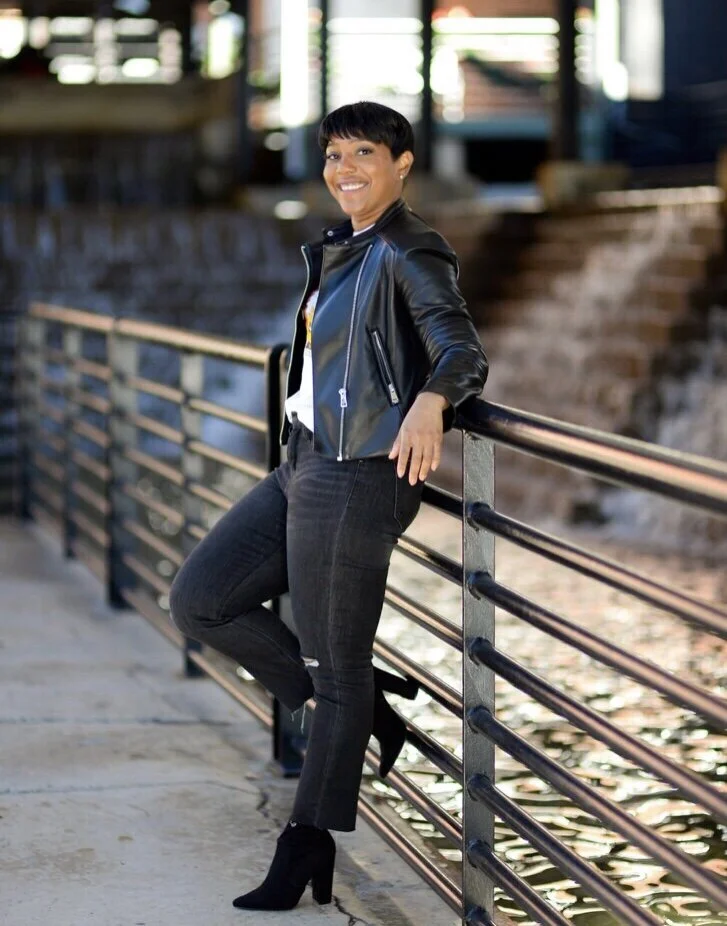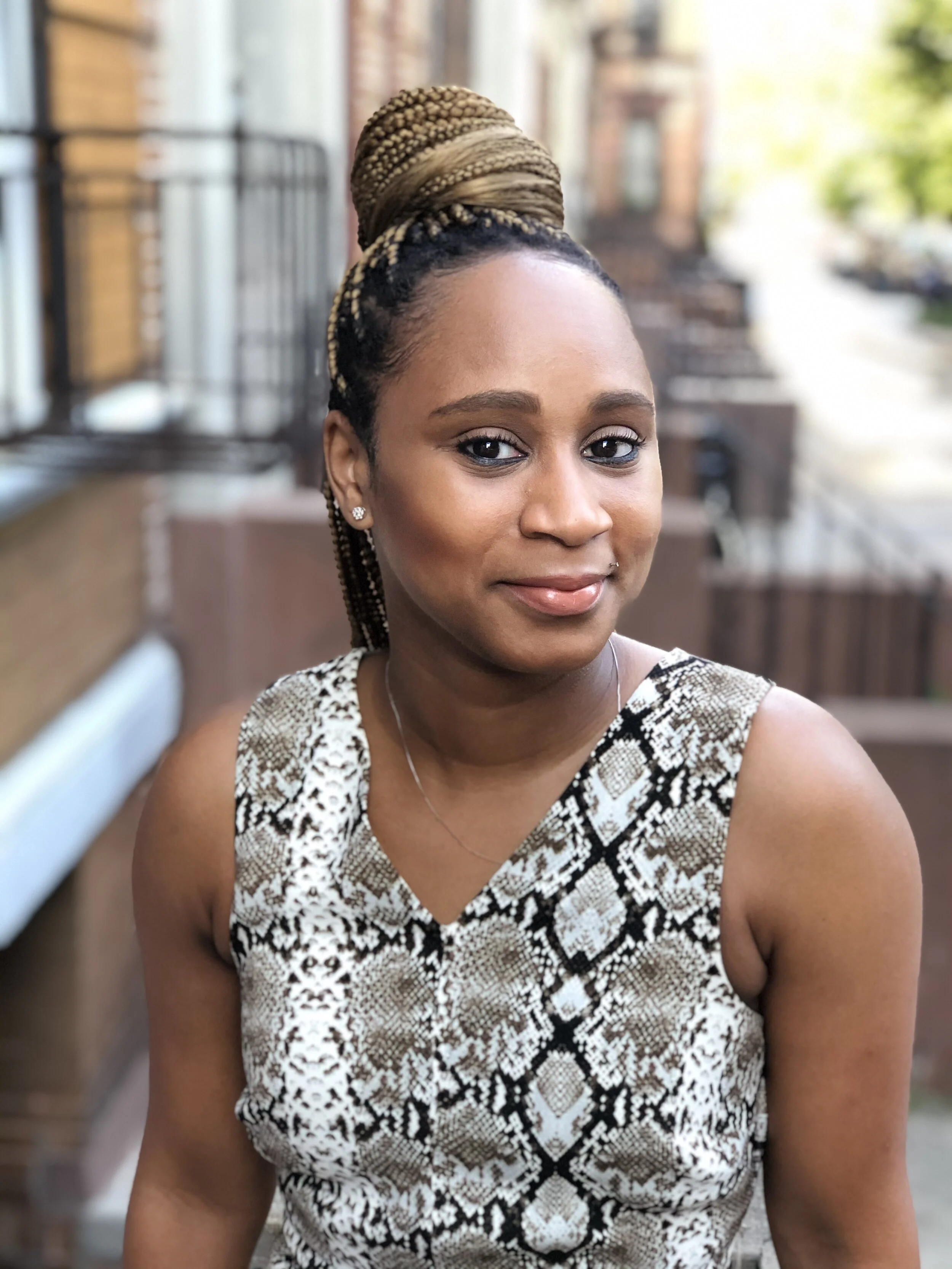Chloe Ford, U.S. Campus Diversity, Manager, American Express
Hi Chloe! Can you describe what you do?
Absolutely. I am a manager for American Express. I manage all of the campus recruiting diversity efforts which is actually a newly created role. When we think about campus recruiting, we’re specifically talking about early talent. So, anyone who is in undergrad pursuing their undergraduate degree, or their MBA...we have a number of different programs. I primarily managed the U.S., but now, my role has spanned over into assisting the U.K. because they don’t have anyone who works in this capacity. Our efforts involve first creating a strategy, then implementing it, and then executing it – all to figure out the best ways to reach diverse populations, engaging them, recruiting them, and retaining them.
One of the things that I’m always trying to push for in regards to my team, and stakeholders I communicate with, is what I refer to as, "direct and develop." We want to direct them to our opportunities, but we don’t want to lose sight of them once they’re in the door. We also want to develop them, so that there is long-term career success within the firm, as well as professional success as a whole.
Can you describe a little bit more what it looks like in practice to set up a young person for success?
Young people always have an idea of what they want to do. They’ve gone to college, pursued a specific major, joined all of these organizations, interned in various companies. And then, of course, by the time they’re an MBA student, they’re pursuing a particular career path at a very serious level. But truthfully, there are a number of other things required in building out a career trajectory. Often, students pin themselves in a box and they think, Okay, I pursued this degree so I have to stay on this path. As working professionals, we know there is no direct path. So what I like to do is listen to which direction the student thinks they want to go in, and encourage them to explore. What are their interests? How do they want to pursue this particular career goal? Then, I try to connect them with the right people so that they can do that exploration, and see what options may be a good fit, versus me telling them what they should be doing.
In diverse communities, I don’t know if we know all of the options and opportunities that are available to us in the way that our peers sometimes do. And I think our peers know because of the connections that they have not only through institutions such as universities, but also family connections. Our peers are sometimes beginning to think about their career exploration as young as middle or high school. So, when it comes to diverse professionals, it’s really important to let them know what opportunities are out there that align with their interests. It’s setting them up for success in the right way, by helping them create a network, and then a success plan. Mentorship is required, especially as a diverse professional. Mentorship is anyone who can guide you in the right direction. And there’s sponsorship, which is someone who is in those important rooms, who has a seat at the table, and can identify a number of opportunities that they are able to extend to you to advance your career.
I’m interested to know a little bit more about your own background. Are there any parallels between your own educational and professional background, or your upbringing, and the way that you approach your work with young people?
Well my previous response was me as a young professional. That’s why I feel very passionate about this work. I was a fashion student at North Carolina State University. My concentration was in brand marketing and management. I thought that I wanted to continue in the direction of fashion apparel, or any sort of marketing. I realized, as I started my first job out of college, that I hated it. It was such a blow to my confidence, because I grew up as a kid knowing that I wanted to pursue something around fashion. And so I went to school, did everything that was expected of me. I interned and all of that other stuff. And then, when getting into the textile community after school, my first job out was nothing like I expected. I felt disappointed in myself, and trapped. My parents just spent all this money on school, and now I’ve got to tell them, actually, this is not what I want to do at all. So, I had to muscle up some hustle. I did a lot of digging internally to determine, Okay, so Chloe, what do you like? What are you good at? And it was definitely a journey. I worked in retail during that time, then I transitioned into recruitment.
Now, I’m at this point where I really feel much more confident. I know what I’m passionate about. And so, I think a lot of my personal experience feeds into the advice that I give students. And I tell them what I experienced. I give them my background so they can know that it’s possible to start in one place and land in another unexpectedly, and it is OK. By no means would I have thought I would be working with any of these financial firms. Had you asked me that 18 years old, I wouldn’t have been able to tell you what a JP Morgan or an American Express was or what they do! (laughs) But that level of transparency is important for the students to hear, and I try to be as honest as possible.
In your own development, do you feel you’ve received some helpful advice at some critical moments? If you think back to a time where maybe your sense of self or your direction shifted, who was involved and what was said?
That’s a great question. So many people have poured into my life and I’m very grateful for all of them. I will say the shift really came when I moved to New York, three years ago. That forced me to level up in a way. I was fortunate enough to be in a very unique situation where I actually had two female Black women who were my directors. That’s a very rare occurrence in a financial firm. In North Carolina, most of my direct bosses were white. And so, when I had the opportunity to work under these two Black women, they really took me under their wing. There was such a level of transparency and honesty in how they shared their experiences with me. I actually work for one of them now, which is crazy to come full circle like that. It’s really special to have an older Black woman see herself in you, and you see yourself in her, and to then see how she’s reached the heights that she has reached. Then to have that person say, I see potential in you, is something I cherish. It has afforded me a number of open doors that I’m very grateful for. I’m also very grateful to have a mother who strives for nothing but the best. I have three sisters who have done some amazing things, as well as my grandmothers, my aunts. I now feel that it is my responsibility to do the same, for other women of color, specifically, given the position I’m in.
Awesome. So what is your biggest takeaway in the role that you’re in currently? How has that helped you think about your next move – what you want to do, or not? How have you refined your future career plans?
Well, I can tell you what I definitely am not interested in. Now that I have cycled through a few spaces in Corporate America, I know deep down inside that this will probably be my last little hurrah. It has proven to be very beneficial in a lot of ways. But especially in the realm of diversity, it can be so deflating. I don’t know if these spaces are really ready for the level of conversations that we need to have to make true change. To your original question, what am I learning? I’m learning that what should be common sense in this work, is still not common sense at all. It can feel that you’re doing very beginning stages of work to educate and expose your colleagues. For example, Black students are everywhere. You don’t have to go to just historically Black colleges and universities, or through specific channels or outreach strategies, to find diverse populations. Black people are multifaceted. Communities of color are multifaceted. Women are multifaceted. And it sometimes feels like you’re running the same play over and over, and that can be really frustrating because it feels like you’re only just tapping the surface. I know that there is so much more, deeper work that we can be doing that doesn’t just impact the business, but also impacts the communities. These large companies have all of this money, and if they just push themselves a little bit further, they can do so much more. Also, I don’t ever want to be the mouthpiece for Black people or communities of color, and that’s something that I battle with here and there.
What my experiences have shown me, though, is that I’m great at building strategy. Not even bragging about myself or anything like that.
Do it!
I am! (laughs) I’m great with building strategy. I’m great with getting people on my side, influencing people, and then breaking it down at a level where people can understand. I’m also very passionate about students. I really enjoy working with students and young professionals. And so, I know that through all of these opportunities, it’s exposing me to potentially moving into some form of consulting, or going back into academia in some way where I have a direct connection with this population.
And so continuing on that thread, my last question: on the personal front, what are you excited about for your own future? What are you looking forward to?
I don’t know about you, but this whole quarantine has shone a light on some aspects of myself, just personally, that I want to work on. There are things that I have been putting off because of work or I’ll tell myself I’m too busy. And I’m realizing that I have talked myself out of a lot of those things out of anxiety or fear – fear that people will see me in a different light. I think I’m ready to take a leap. I’d love to launch some amazing programs. I’d love to be a voice in conversations that I would have never imagined being a part of. I’m realizing I need to give myself a little more credit. I teeter and wrestle with humility. It may just be upbringing but it’s something I have been thinking about a lot. As women, we’re supposed to always be helpful, accommodating and never boastful, and as a Black woman, it’s just another layer of that kind of conditioning. This quarantine is really shining a light on that thinking, and forcing me to deal with it. Now I think, Well, why shouldn’t I do this thing? I’m realizing, I’m pretty great. What I do is pretty amazing. And if I’m telling students and early talent those affirmations about themselves, I have to be able to also tell that to myself. So, that’s what I’m most excited about, is coming into my full confidence, and being more proud of the work that I’ve put out in the world. And letting the world see it and celebrate it.
That is a beautiful note to end on. Thank you.
Please share this post with a friend, and follow us at @BlackWomenWorkIG!



